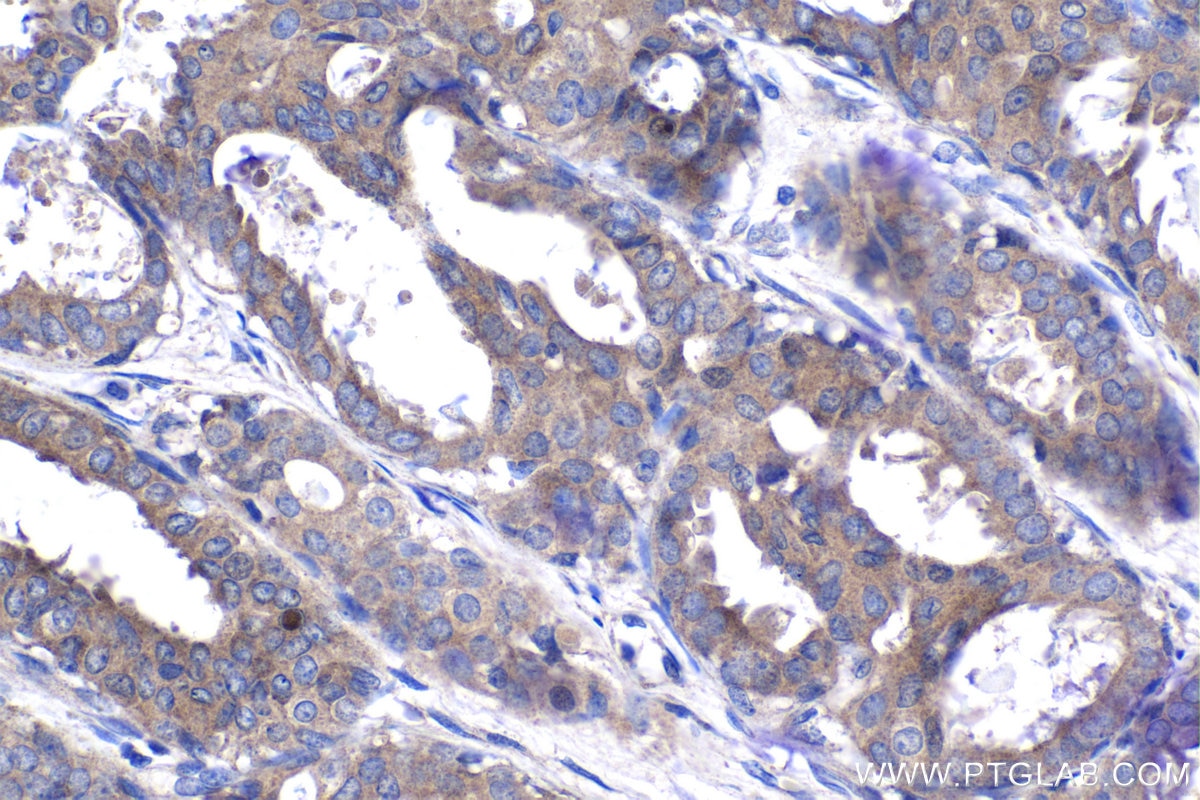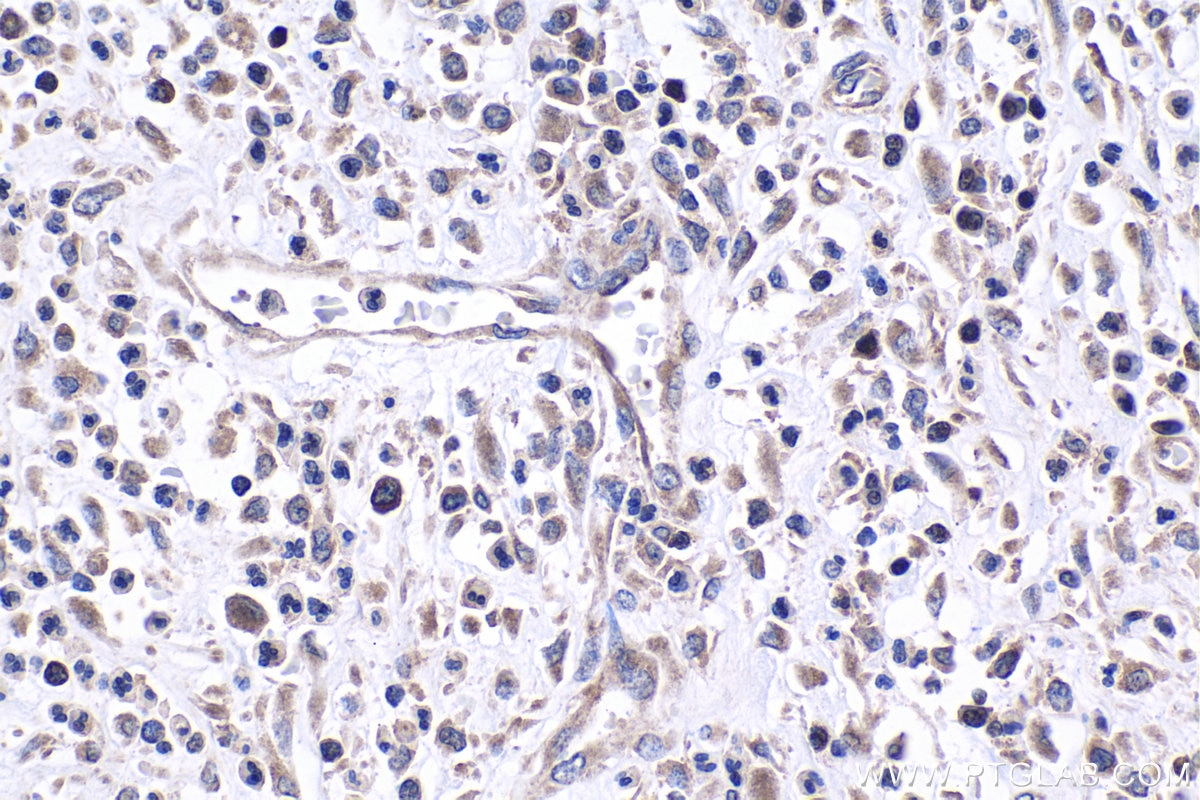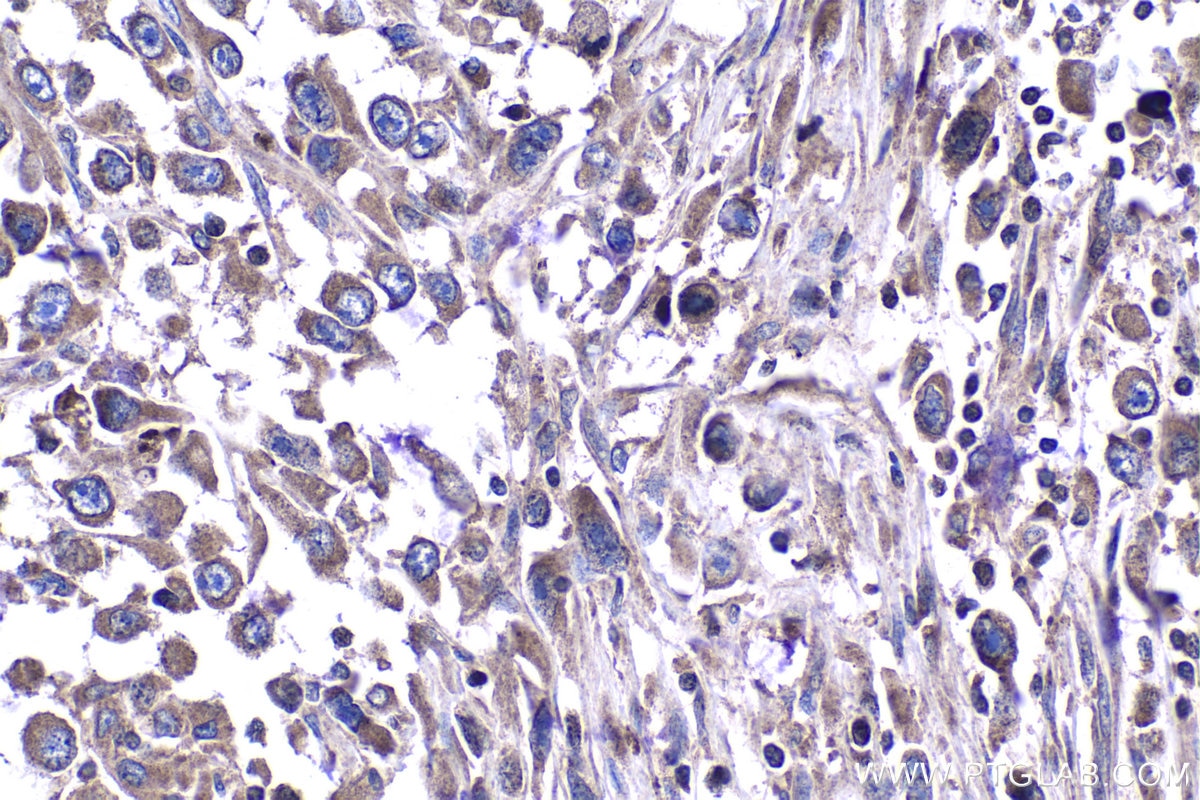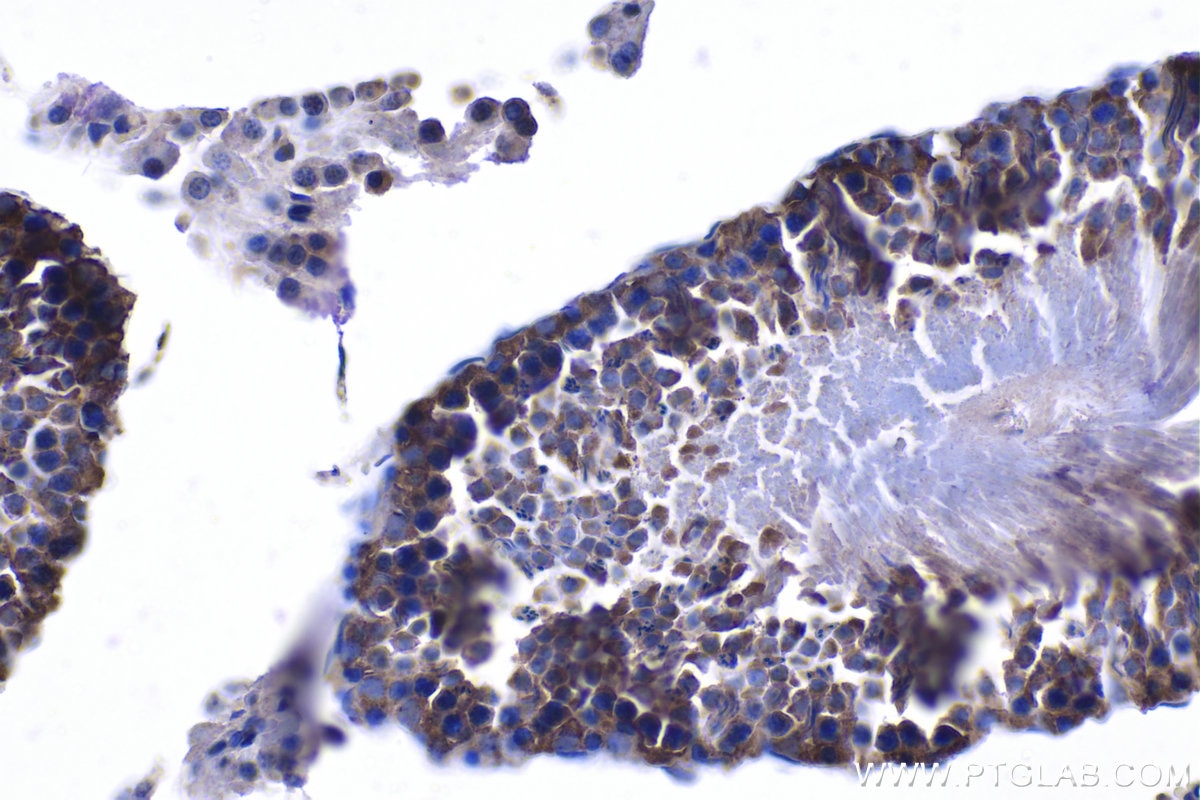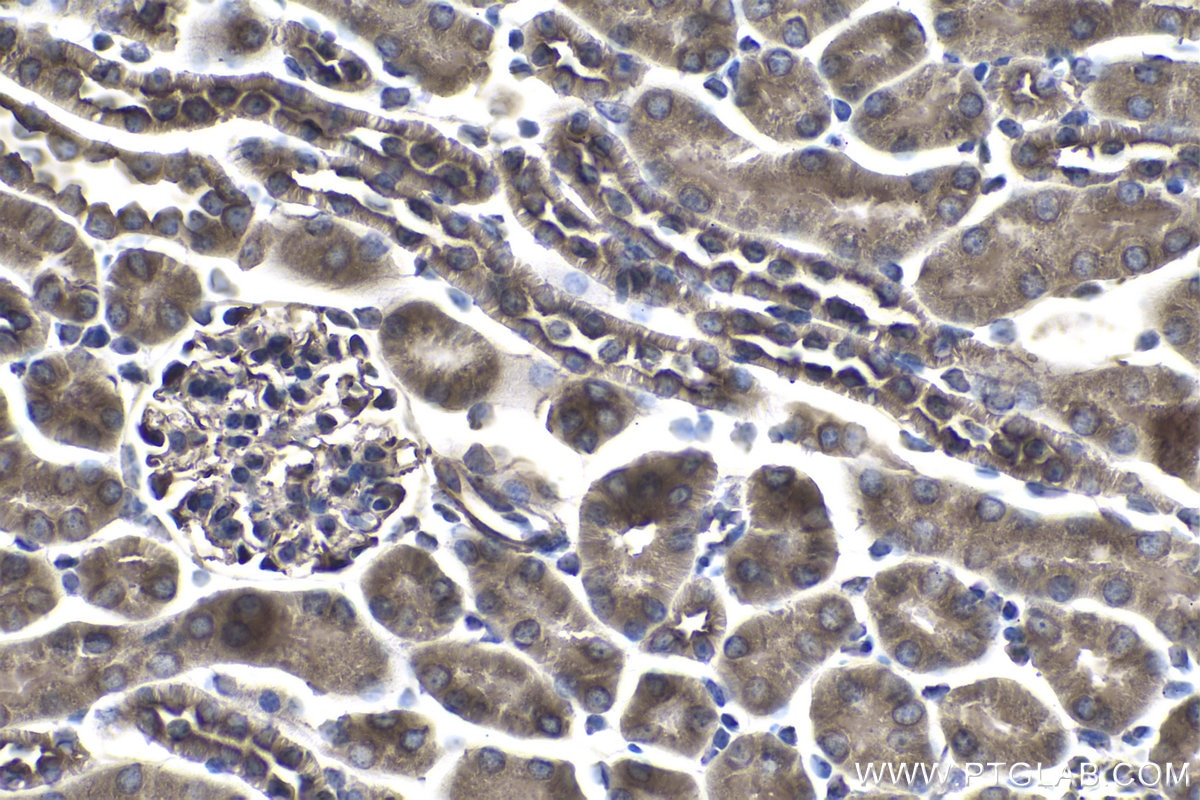FGFR3 Polyklonaler Antikörper
FGFR3 Polyklonal Antikörper für IHC, ELISA
Wirt / Isotyp
Kaninchen / IgG
Getestete Reaktivität
human, Maus, Ratte
Anwendung
IHC, ELISA
Konjugation
Unkonjugiert
Kat-Nr. : 55358-1-AP
Synonyme
Galerie der Validierungsdaten
Geprüfte Anwendungen
| Erfolgreiche Detektion in IHC | humanes Mammakarzinomgewebe, humanes Kolonkarzinomgewebe, humanes Lungenkarzinomgewebe, Mausnierengewebe, Rattenhodengewebe Hinweis: Antigendemaskierung mit TE-Puffer pH 9,0 empfohlen. (*) Wahlweise kann die Antigendemaskierung auch mit Citratpuffer pH 6,0 erfolgen. |
Empfohlene Verdünnung
| Anwendung | Verdünnung |
|---|---|
| Immunhistochemie (IHC) | IHC : 1:500-1:2000 |
| It is recommended that this reagent should be titrated in each testing system to obtain optimal results. | |
| Sample-dependent, check data in validation data gallery | |
Produktinformation
55358-1-AP bindet in IHC, ELISA FGFR3 und zeigt Reaktivität mit human, Maus, Ratten
| Getestete Reaktivität | human, Maus, Ratte |
| Wirt / Isotyp | Kaninchen / IgG |
| Klonalität | Polyklonal |
| Typ | Antikörper |
| Immunogen | Peptid |
| Vollständiger Name | fibroblast growth factor receptor 3 |
| Berechnetes Molekulargewicht | 88 kDa |
| GenBank-Zugangsnummer | NM_000142 |
| Gene symbol | FGFR3 |
| Gene ID (NCBI) | 2261 |
| Konjugation | Unkonjugiert |
| Form | Liquid |
| Reinigungsmethode | Antigen-Affinitätsreinigung |
| Lagerungspuffer | PBS mit 0.02% Natriumazid und 50% Glycerin pH 7.3. |
| Lagerungsbedingungen | Bei -20°C lagern. Nach dem Versand ein Jahr lang stabil Aliquotieren ist bei -20oC Lagerung nicht notwendig. 20ul Größen enthalten 0,1% BSA. |
Hintergrundinformationen
Fibroblast growth factors (FGFs) are polypeptide growth factors involved in a variety of activities including mitogenesis, angiogenesis, and wound healing (PMID: 1847508). The human FGF receptor family, a subfamily of receptor tyrosine kinases (RTKs), comprises of four family members-FGFR1, FGFR2, FGFR3, and FGFR4 (PMID: 23900974). Each receptor contains an extracellular domain with either two or three immunoglobulin-like domains, a transmembrane domain, and a cytoplasmic tyrosine kinase domain. FGFR3 binds acidic and basic fibroblast GH and plays a role in bone development and maintenance. Mutations in the FGFR3 gene lead to craniosynostosis and multiple types of skeletal dysplasia. Due to frequent mutations in certain cancers, the FGFR3 gene has also been associated with tumor progression.
Protokolle
| Produktspezifische Protokolle | |
|---|---|
| IHC protocol for FGFR3 antibody 55358-1-AP | Protokoll herunterladen |
| Standard-Protokolle | |
|---|---|
| Klicken Sie hier, um unsere Standardprotokolle anzuzeigen |
